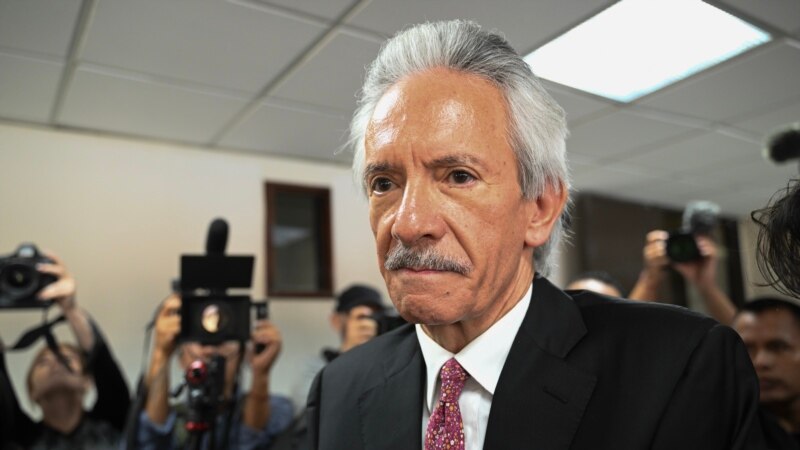
A Guatemalan court will decide this Wednesday whether to convict journalist José Rubén Zamora, nationally and internationally recognized for his investigations into corruption and a strong critic of the government of President Alejandro Giammattei, accused of money laundering, extortion and influence peddling.
The sentence comes after several organizations denounced an escalation of authoritarianism in the country that includes the persecution of journalists and judicial officials and the exclusion of candidates who are not part of the traditional political forces.
The 66-year-old journalist has said he is innocent of the prosecution’s charges and was tried without the court allowing evidence to be presented in his favor. Cinthia Monterroso is the prosecutor who accuses him.
Zamora was the director of El Periódico, a outlet that closed its doors on May 15 due to political and financial pressures, in which he exposed the accusations against Monterroso for abuse of power for allegedly using his position to investigate the unfaithful husband of a friend, among other complaints.
Monterroso asked the court that Zamora be sentenced to 40 years in prison for allegedly laundering bribe money and influence peddling and asked to aggravate the sentences for “contempt for authority” for the journalist’s publications on the Attorney General, Consuelo Porras, and the head of the Special Prosecutor’s Office Against Impunity, Rafael Curruchiche, both sanctioned by the US government for hindering the fight against corruption and undermining democracy in the country.
According to the prosecutor, Zamora asked his friend Ronald García Navarijo, a former banker accused of corruption, to deposit more than $30,000 in cash in a bank. Instead of doing so, he denounced Zamora.
Zamora’s defense maintains that the money was the product of a donation and that the journalist did not deposit it in his own account to avoid knowing who the donor was due to government pressure on El Periódico.
Meanwhile, Zamora’s family has said that what triggered the journalist’s imprisonment was the publication of a case known as “The Russian plot” according to which President Giammattei would have received bribes from Russian businessmen in exchange for benefits in mega-concessions. Projects.
National and international organizations defending the press and human rights have pointed out that the case against Zamora is a criminalization of the journalistic practice in Guatemala and have requested his release.
Although the prosecutor’s office has said that there is no persecution against the press, it asked Judge Jimi Bremer to authorize investigations against nine communicators from El Periódico for their publications on judges and prosecutors who allegedly had failures in the process against Zamora.
The prosecutor’s office has also accused Zamora in two other cases, one of them for falsifying documents for allegedly having signed the immigration slips incorrectly when leaving or entering the country.
Judge Bremer himself, at the request of the prosecutor’s office headed by Monterroso, is the one who has ordered the initiation of that investigation.
Zamora has been awarded prizes such as the María Moors Cabot from Columbia University, the International Press Freedom Award and the World Press Freedom Hero Award from the International Press Institute.
Connect with the Voice of America! Subscribe to our channel Youtube and activate notifications, or follow us on social networks: Facebook, Twitter and Instagram.


![[Img #74664]](https://thelatestnews.world/wp-content/uploads/2024/12/James-Watson-The-controversial-genius-behind-the-double-helix-150x150.jpg)









